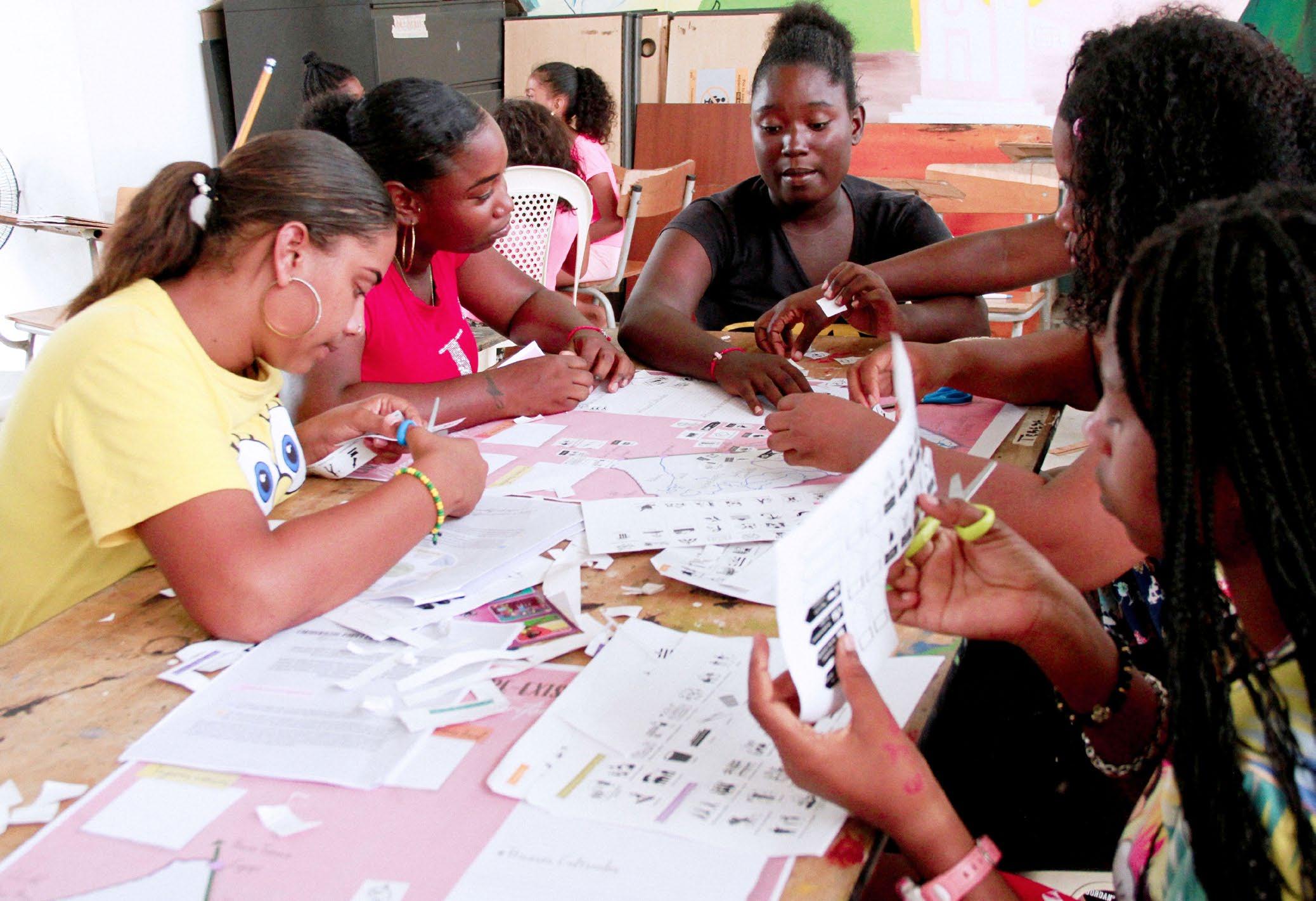
3 minute read
Winds of Peace Blow in Our Favor
WINDS OF PEACE
BLOW IN OUR FAVOR
This article addresses some of the challenges facing the current government in the areas of human rights and peace for transforming the lived realities of women and young people in the territories.
Organization and advocacy workshop - La Nupa 2022
TEXT AND PHOTO: CARTOGRAFÍA SUR oday, Colombia faces a T substantial challenge in the areas of human rights and peacebuilding. After 200 years of being governed by the political and economic elite of the country, hope has returned following the election of Gustavo Petro as President and Francia Márquez as Vice President on June 19, 2022. Without a doubt, these are historic results that stand on the shoulders of social organizations and alliances between political movements.
While it is a hopeful scenario, the challenges ahead will not be easy to overcome, as the country’s political and economic powers continue to exert pressure to trip up the administration’s social agenda. For this reason, great efforts will have to be made, from social inclusion policies to access to goods and services and even resuming peace negotiations, for the worsening armed conflict is exacting grave consequences in the territories.
If our work with women and young students in political advocacy and alternative media has shown us anything, it is the need to create paths for building other life projects that go beyond offers of education for employment or of membership in armed groups and criminal networks present in the territories. This is the reality of the majority of young people living along Colombia’s periphery, such as residents of the Nupa of the Caunapí River Community Council in Tumaco, Nariño. With this group of young people, with whom we’ve been working for five years, we have identified the primary shortcomings in social transformation processes as a lack of opportunities, access to education, and legal work, and the fact of living in the midst of an active armed conflict.
Although this group of young people has been participating in community activities and has consolidated themselves into a collective called PHYSIUMS, its members still lack real possibilities for accessing life projects that would enable them to strengthen their individual capabilities and, in this way, deepen their organizational and collective processes. This is a structural task and achieving it requires state policies that could begin to change these lived realities.
Another challenge that has become crucial in the midst of this political moment has to do with resuming peace processes in Colombia. The Final Accord for Ending the Conflict and Building a Stable and Lasting Peace represented progress for the country, however Iván Duque’s administration acted on his pledge to “rip up the Peace Accord” and today
the consequences of this are serious: an Accord that has not been implemented; which has not provided opportunities to reintegrated former guerrilla members; which has, in fact, persecuted them, leaving a balance of 326 signatories assassinated; an Accord that did not succeed in transforming the war in the territories.
Today there are new armed structures present in Colombia, divided and distributed throughout the country: paramilitary organizations and drug-traffickers that take over entire territories, intimidating, massacring, and taking away opportunities to build a different country. Peace must form a fundamental part of the political agenda of this administration. It is likewise urgent that the abandoned peace talks with ELN be resumed in order to seek possibilities for peace for communities that today are direct victims of the armed conflict.
The country’s youth have a deepfelt need to demilitarize their lives and territories in order to create other ways of relating with one another and forming collectives. This is one of the primary obstacles facing the young people of La Nupa, who do not enjoy educational or employment opportunities. Once they finish high school, their possibilities are few, which is why many turn to the economic out of joining armed groups or raising illegal crops. This reality must be transformed in order to build more just and equal societies.
Without a doubt, art, culture, and communication have opened the possibility of forming ties with communities and working with them on issues related to peace, the armed conflict, violence, gender, sexuality, and identity, generating transformative, proactive, and organizational dialogues. Today, with the winds of peace blowing in our favor, we have an opportunity to continue working to build a more peaceful, just, and equal society marked by social justice. FM
Reference
www.cartografiasur.org/warmi-nayra/










